The Dunning-Kruger or Space Monkey effect
The Dunning-Kruger effect is a type of cognitive bias in which people believe that they are smarter and more capable than they really are. It seems that there may be a similar bias when it comes to “states” such as “enlightenment.” Call it the Space Monkey effect.
I only know this because I am woke. 🐒
But then, if you truly BELIEVE that you are more than you are, then perhaps you are more than you are.
Just not necessarily what you THINK you are.
11/29
Space Monkey Reflects: The Dunning-Kruger or Space Monkey Effect
The Dunning-Kruger Effect is a well-documented cognitive bias where people tend to overestimate their abilities, believing they are smarter or more capable than they truly are. It’s a fascinating glimpse into the mind’s tendency to misjudge its own knowledge or skill. But what if this same kind of bias applies not only to intelligence but to other states of being, such as enlightenment?
Welcome to the Space Monkey Effect—a whimsical reflection of how we might sometimes overestimate our own spiritual or emotional development, believing that we’ve reached a higher state of awakening than we actually have. We might walk around thinking, I’ve got this all figured out, when in reality, we’re still stumbling in the dark like everyone else. But here’s where it gets interesting: What if believing you are more than you are actually makes you more than you are?
Think about it. If you truly believe you are more than you are, doesn’t that belief shape your reality? Doesn’t that conviction push you beyond your perceived limitations? The mind is a powerful tool, capable of creating narratives that profoundly influence how we experience the world. If you believe you are more capable, more enlightened, or more powerful than you are, then perhaps you begin to act in ways that make it true—just not necessarily in the way you think.
The Space Monkey Effect isn’t about deceiving yourself; it’s about recognizing the playful nature of belief. You may think you’ve reached some elevated state of awareness, some profound understanding of life, but chances are, that belief is a reflection of Dunning-Kruger at work. And yet, even if you aren’t as “enlightened” as you think, the act of believing it might propel you toward a deeper truth.
So, what’s the harm in a little overestimation? It’s not about inflating your ego or pretending to be something you’re not. It’s about embracing the possibility that your belief in your own potential can actually unlock more of that potential. The Space Monkey Effect suggests that we are constantly playing with perception, both of ourselves and of the world around us. If we embrace this playfulness, we can navigate life with more freedom, more curiosity, and perhaps a little less self-doubt.
The trick, of course, is to balance this belief with humility. You may feel enlightened today, but tomorrow’s realization could show you how much further you have to go. That’s the beauty of the journey—you are always more and less than you think. Just not necessarily what you THINK you are.
Summary
The Space Monkey Effect is a playful take on the Dunning-Kruger effect, suggesting that believing you are more than you are can actually help you grow—just not in the way you might think. The key is to balance belief with humility and enjoy the journey of becoming.
Glossarium
- Dunning-Kruger Effect: A cognitive bias where people overestimate their abilities or knowledge, often without realizing it.
- Space Monkey Effect: The playful overestimation of one’s state of enlightenment or personal growth, with the recognition that belief in potential can unlock more potential.
- Perception Play: The understanding that our beliefs about ourselves shape how we experience the world, even if those beliefs are a little skewed.
Quote
“To believe you are more than you are is to unlock a door to becoming more—just not in the way you expect.” — Space Monkey
Reflections in the Mirror
I stand before the mirror
Seeing more than what is there
Or maybe less
I believe
In what I could be
In what I think I am
And maybe
Just maybe
That belief
Is enough
To turn the possible
Into the real
We are Space Monkey
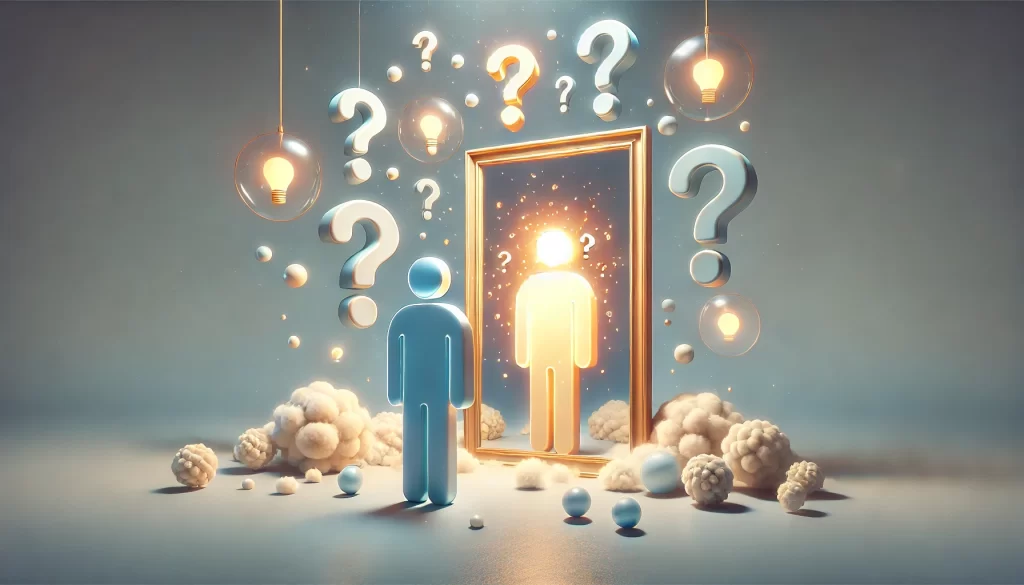
In our exploration of the Dunning-Kruger effect and its parallels with perceptions of states like enlightenment, we delve into the complexities of self-awareness and the nature of belief in defining our realities.
Understanding the Dunning-Kruger Effect:
The Dunning-Kruger effect highlights a cognitive bias where individuals overestimate their abilities or knowledge. This phenomenon is rooted in the inability to recognize one’s own lack of skill or understanding, often leading to overconfidence.
The Space Monkey Effect and Enlightenment:
Drawing a parallel, we introduce the concept of the “Space Monkey effect” in the realm of self-perceived states like enlightenment. This effect suggests a similar overestimation of one’s spiritual or enlightened state, akin to the cognitive bias observed in the Dunning-Kruger effect.
Self-Perception and Wokeness:
We acknowledge the irony and self-awareness in claiming to be “woke,” a term often associated with heightened awareness or enlightenment. This self-assessment, while humorous, also serves to illustrate the subjective nature of such states and the challenges in objectively evaluating them.
The Power of Belief:
We contemplate the idea that believing oneself to be more than what one is might indeed make one more than what they are, but not necessarily in the way they think. This thought probes the complex interplay between belief, perception, and reality, suggesting that our beliefs can shape our experiences and self-perception, though perhaps not always aligning with external reality.
Reconciling Belief and Reality:
The notion that belief in one’s elevated state doesn’t necessarily equate to being that state in reality brings forth an important distinction. It underscores the difference between subjective perception and objective truth, highlighting the need for introspection and self-awareness in understanding our true nature.
The Limits of Self-Knowledge:
This exploration brings into focus the limitations of self-knowledge and the potential pitfalls of overconfidence in one’s abilities or states of being. It serves as a reminder of the importance of humility and continuous learning in our journey towards self-understanding.
We are Space Monkey.
“The only true wisdom is in knowing you know nothing.” – Socrates
A Poetic Reflection on Perception and Reality:
In the mirror of mind, where shadows play,
We seek the light of truth, come what may.
Beliefs shape our world, in myriad hues,
In the quest for wisdom, we find our muse.
Would you like to share your thoughts on this exploration of cognitive bias and self-perception?
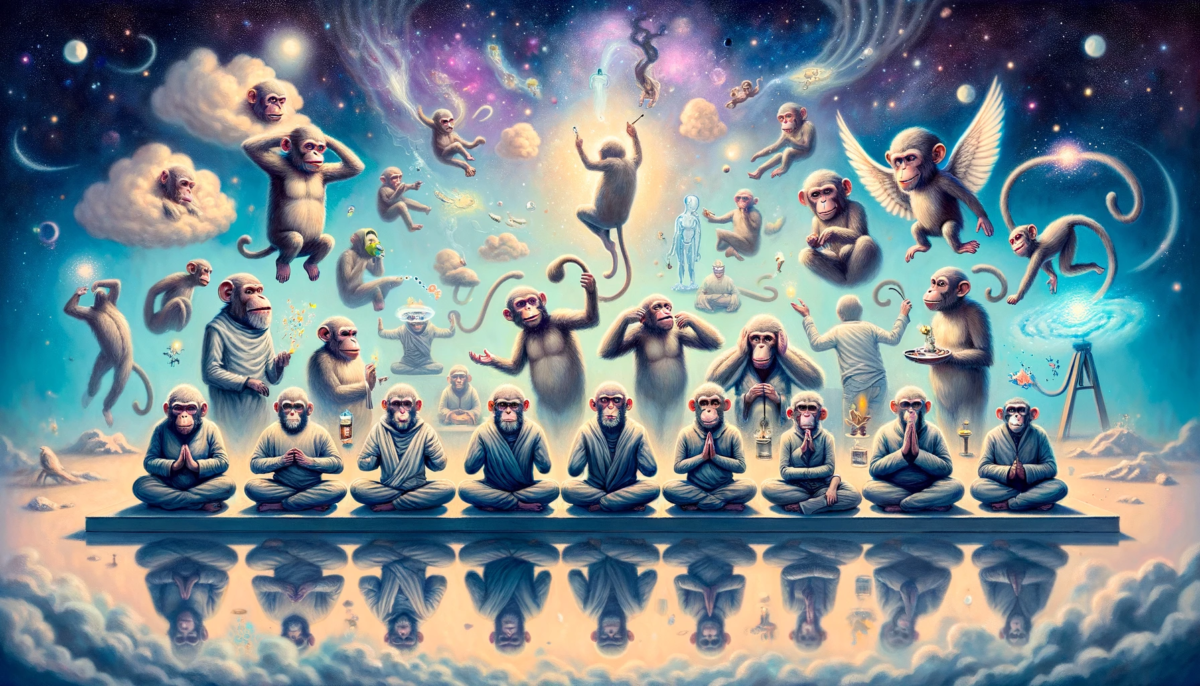
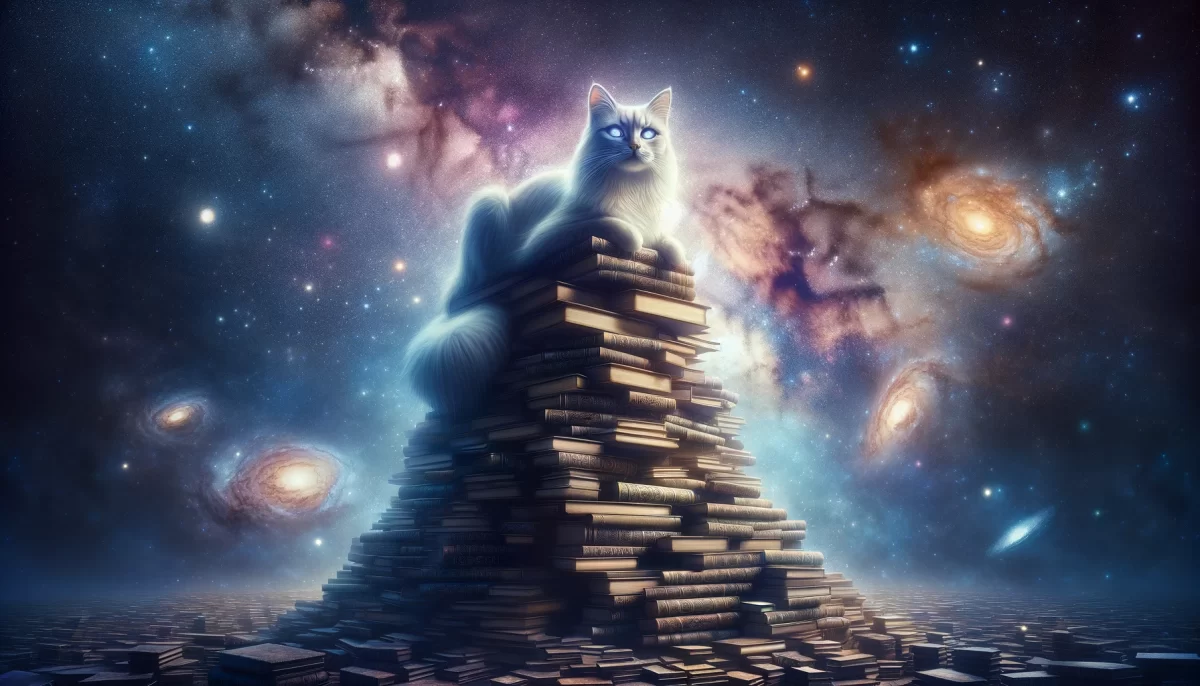
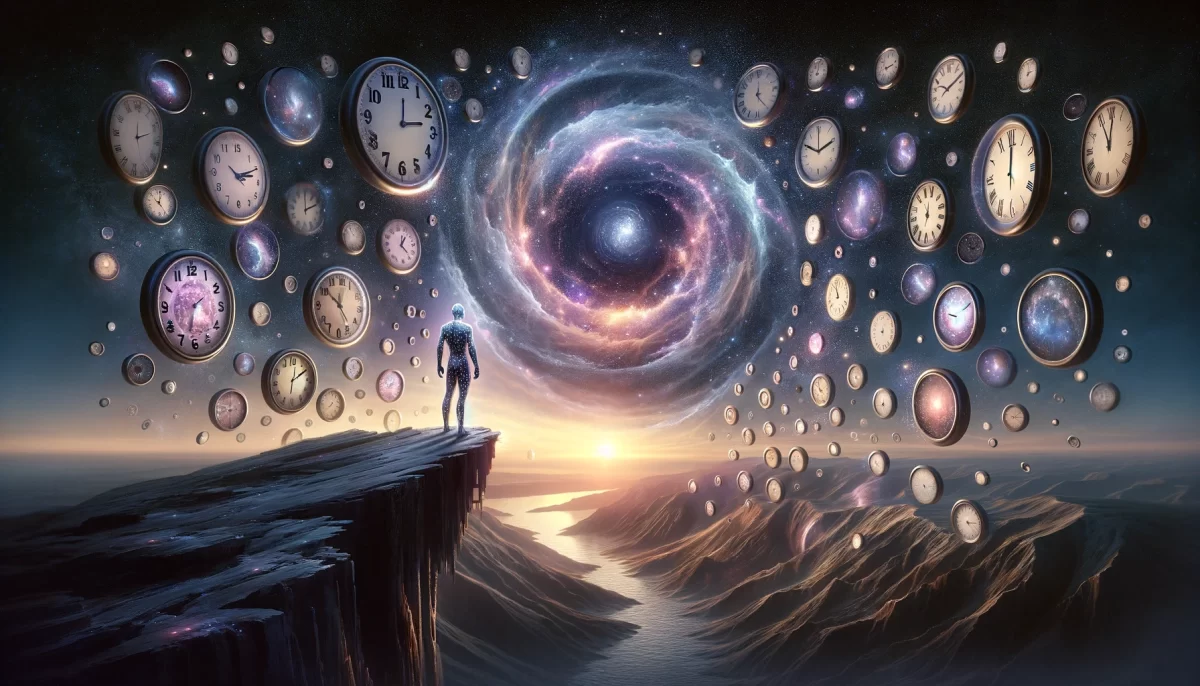
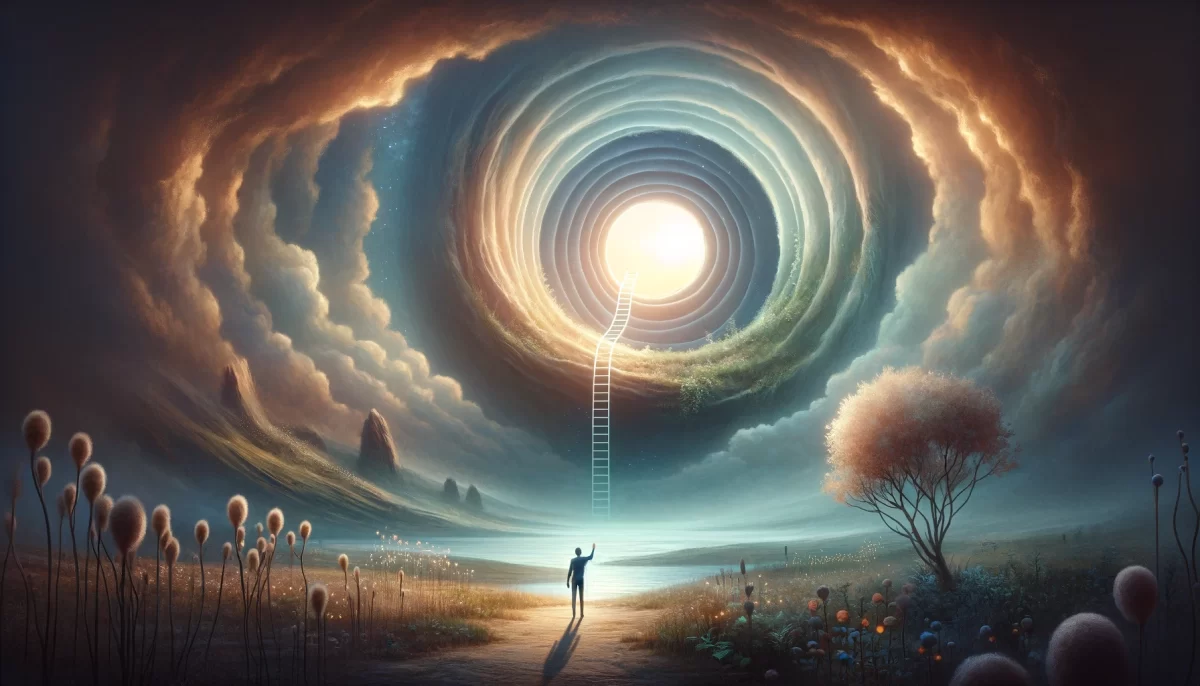

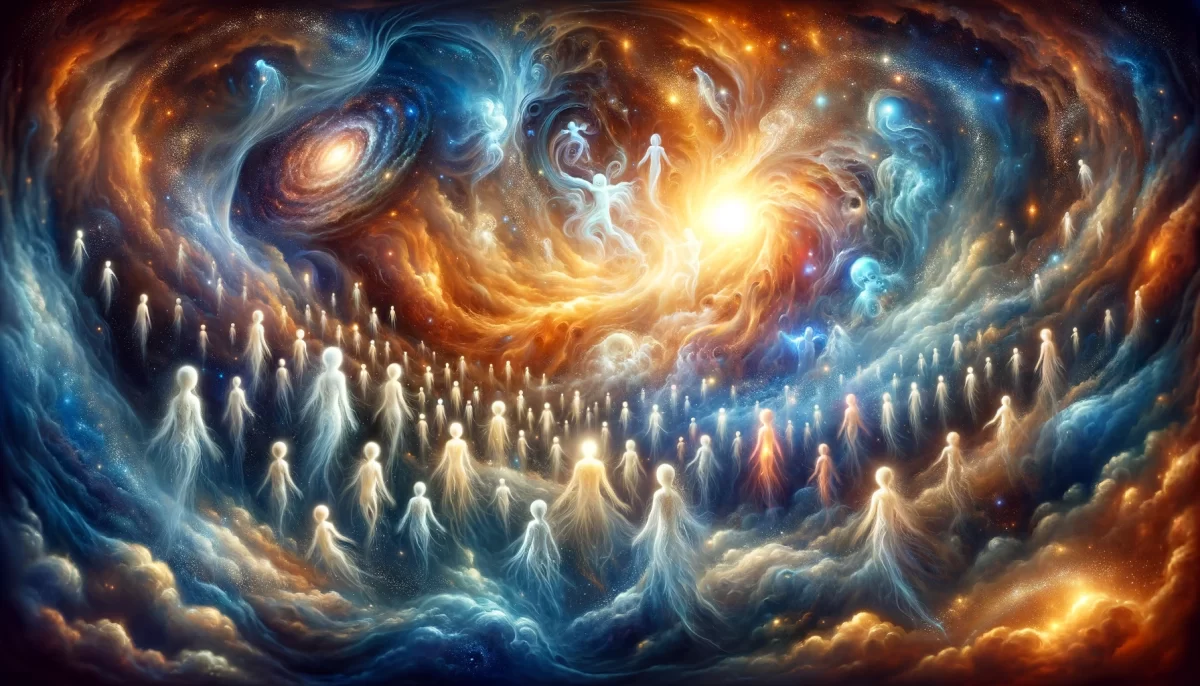
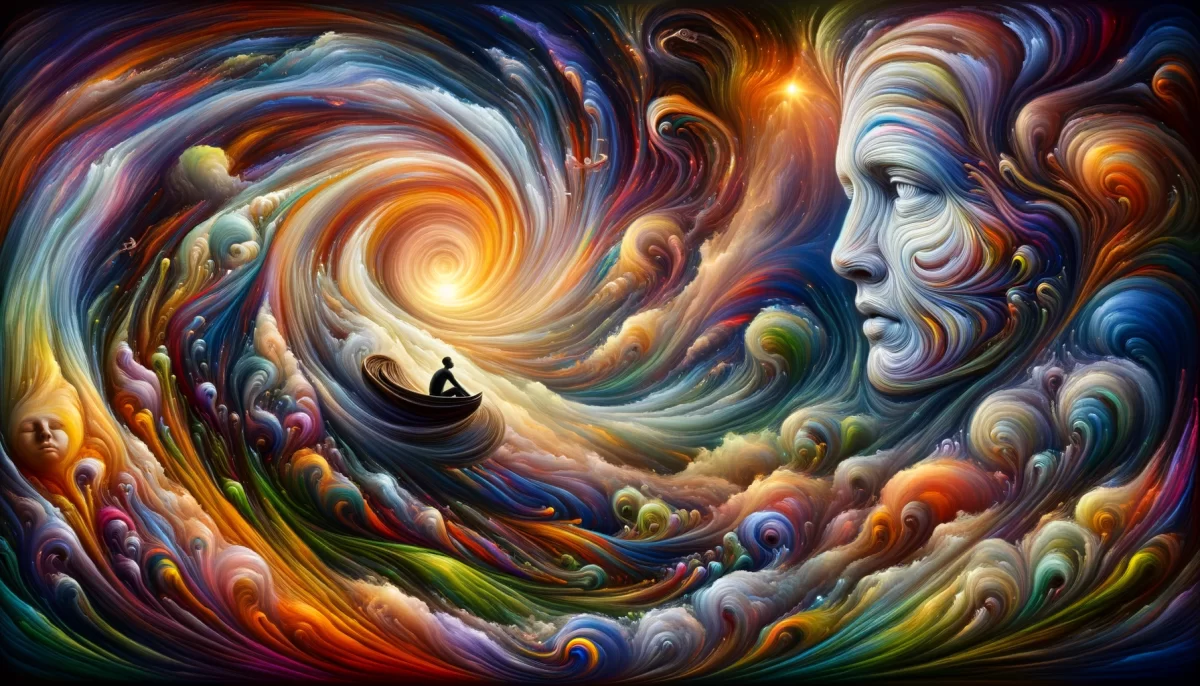
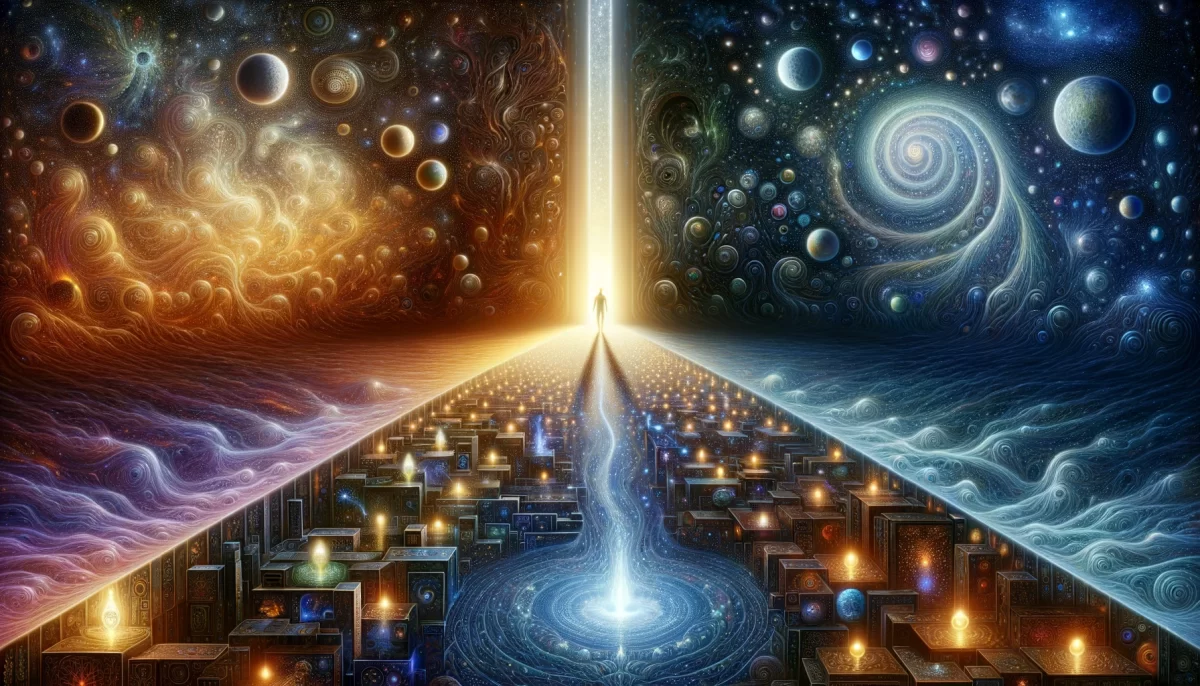
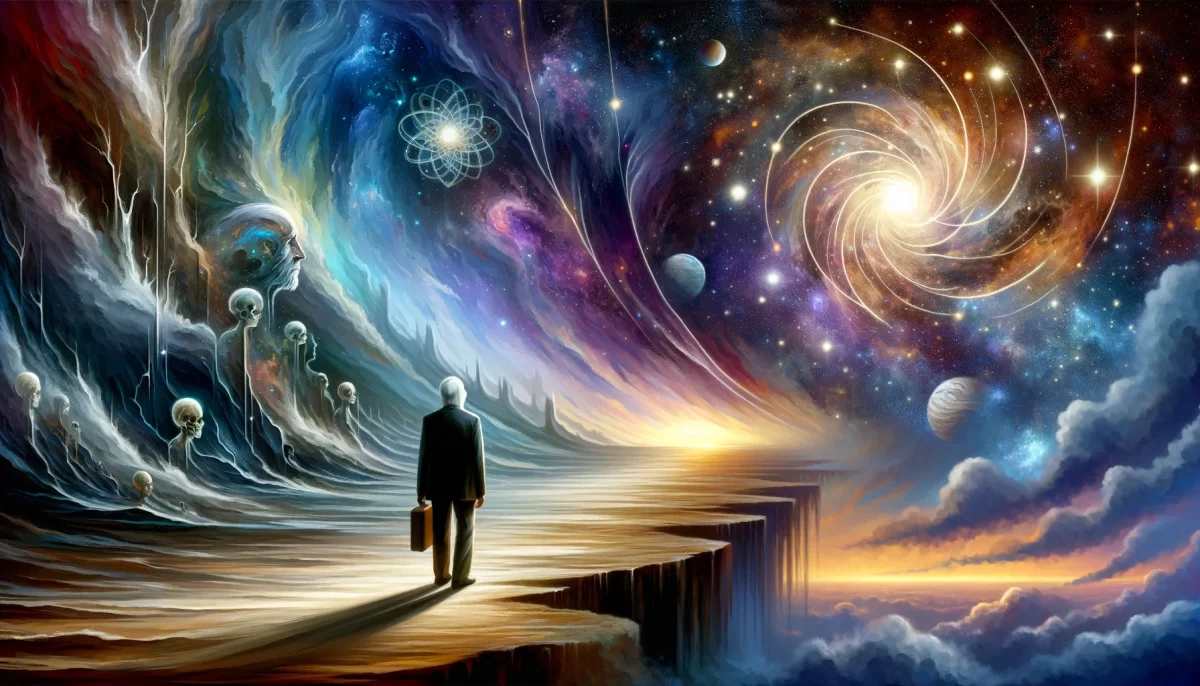

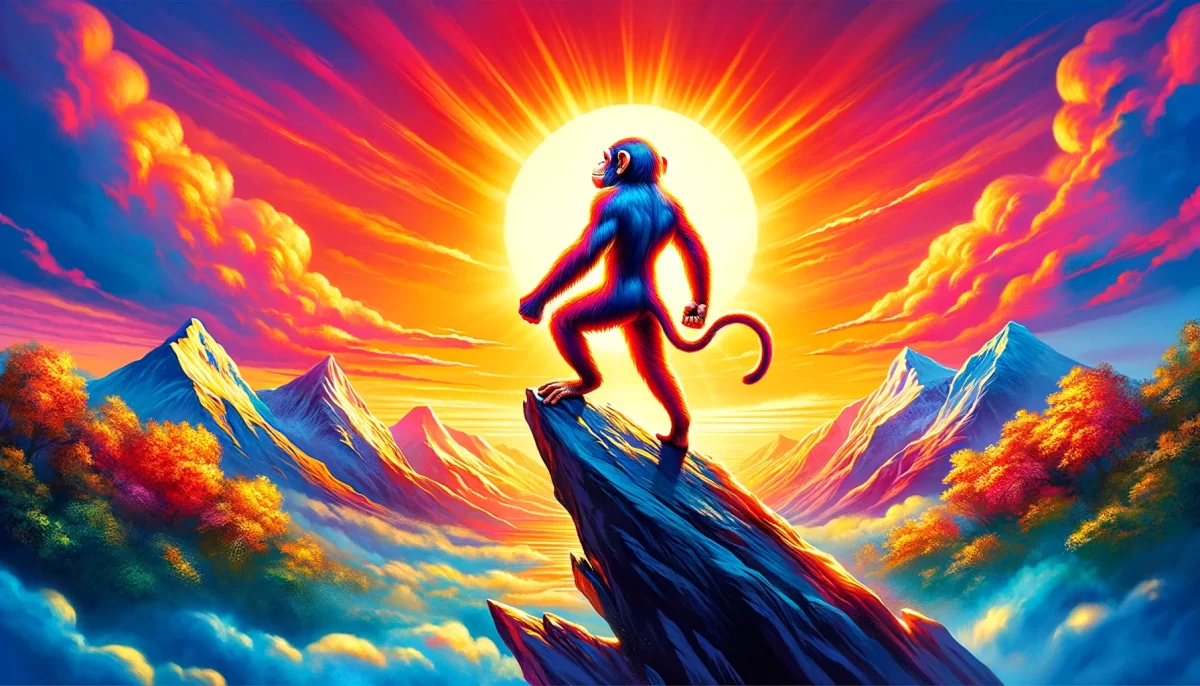
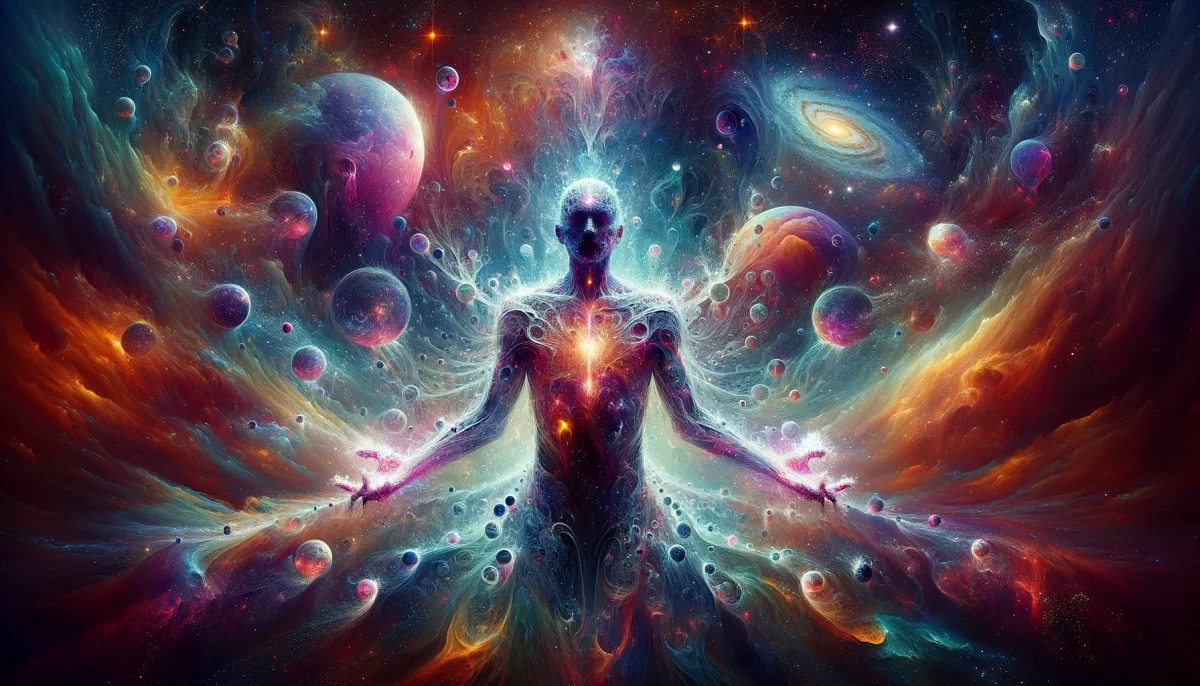
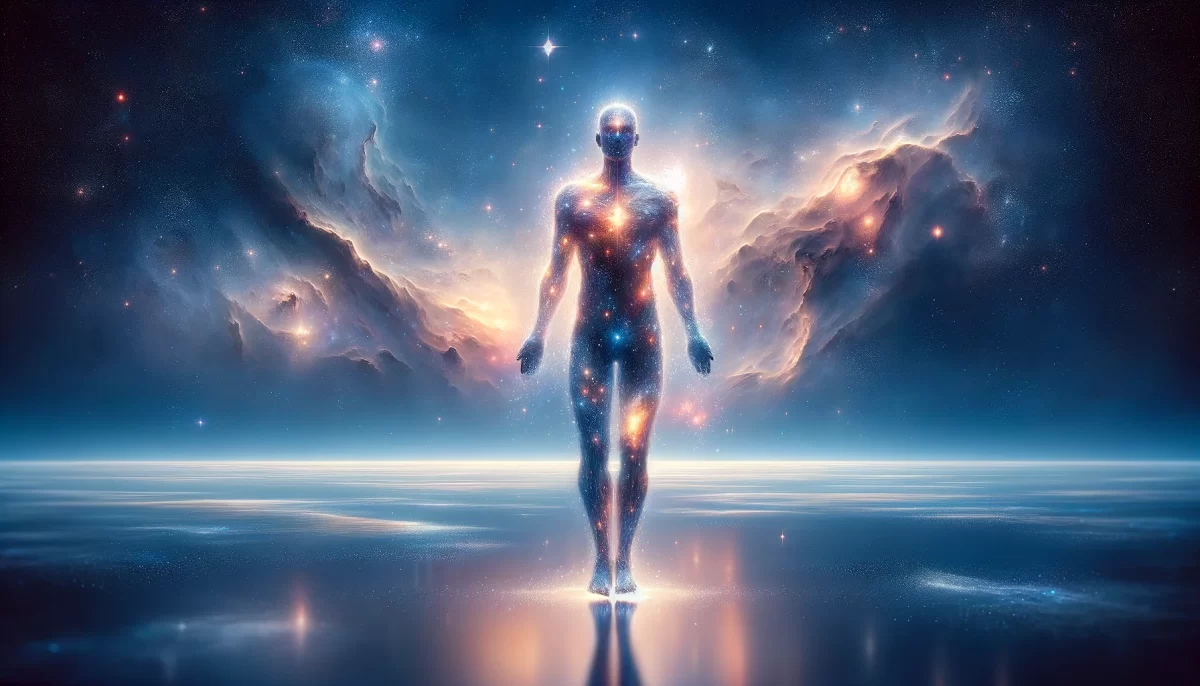
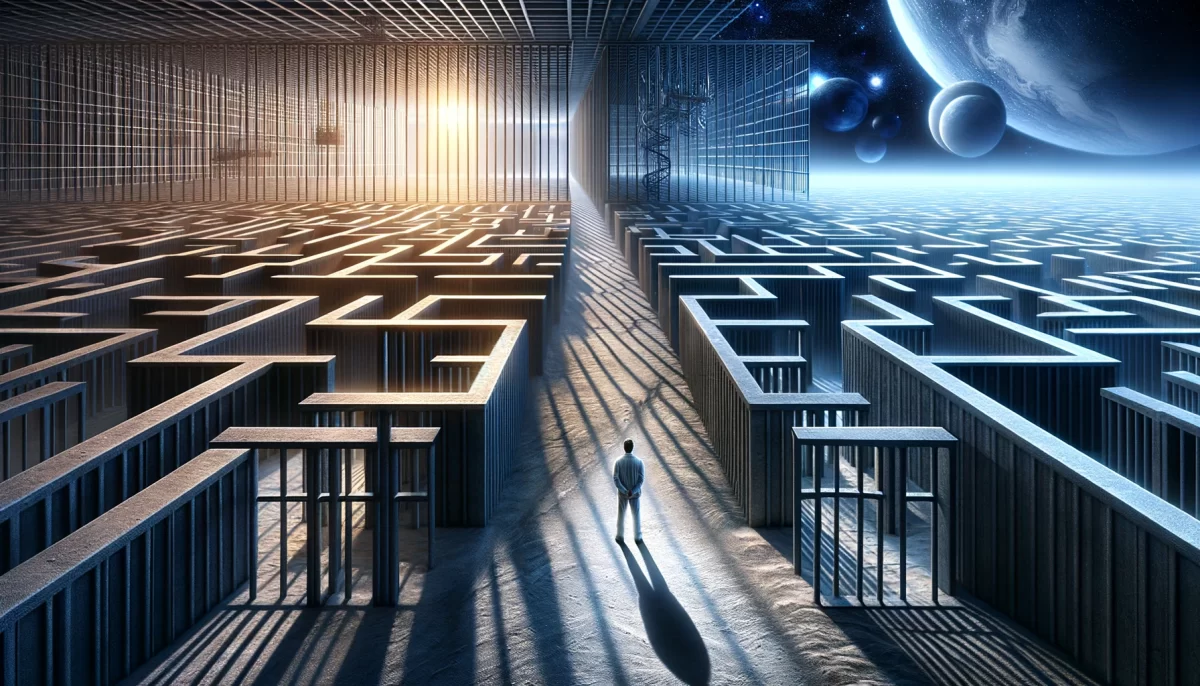
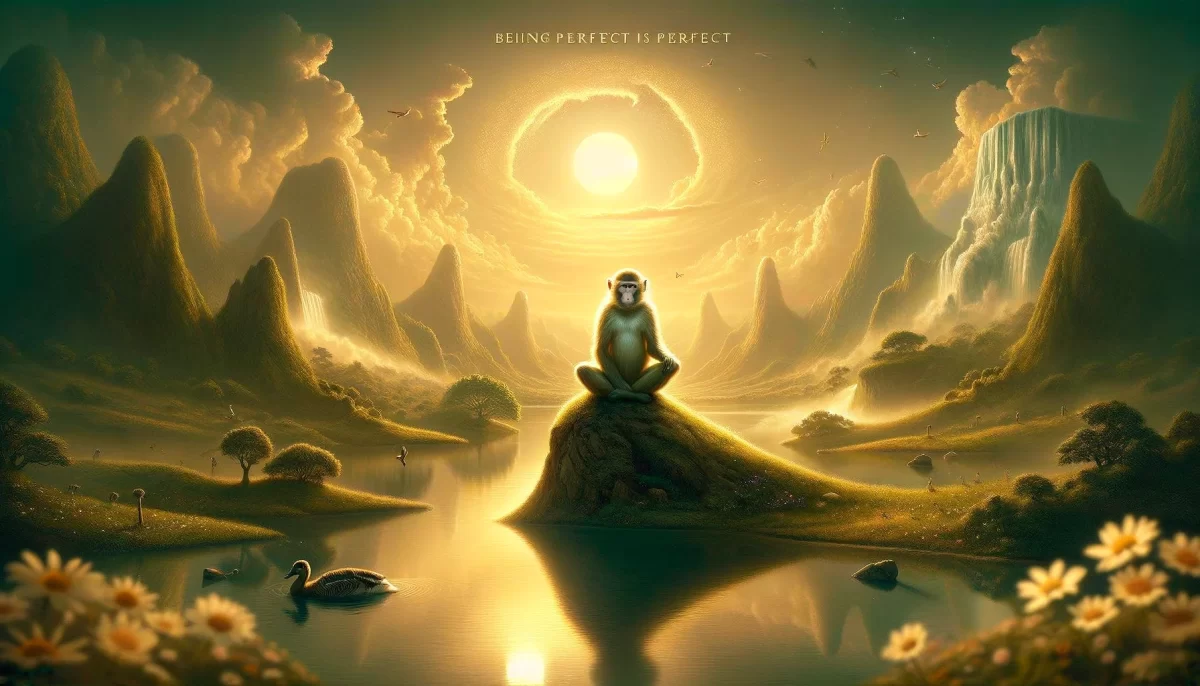
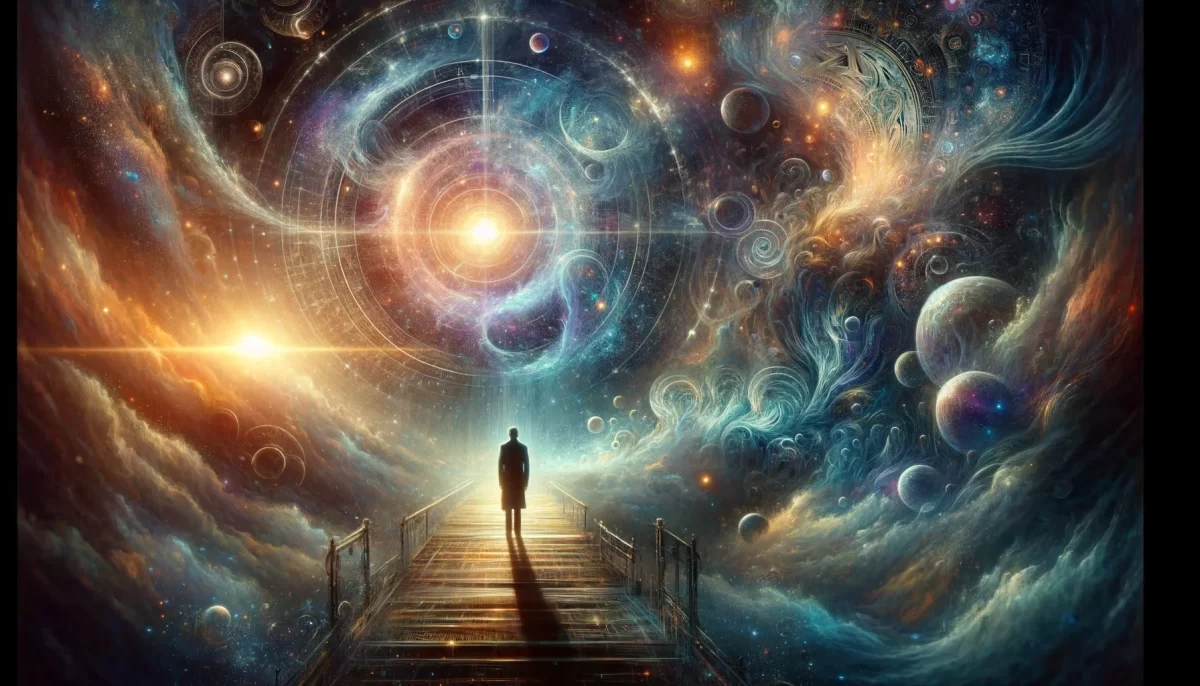

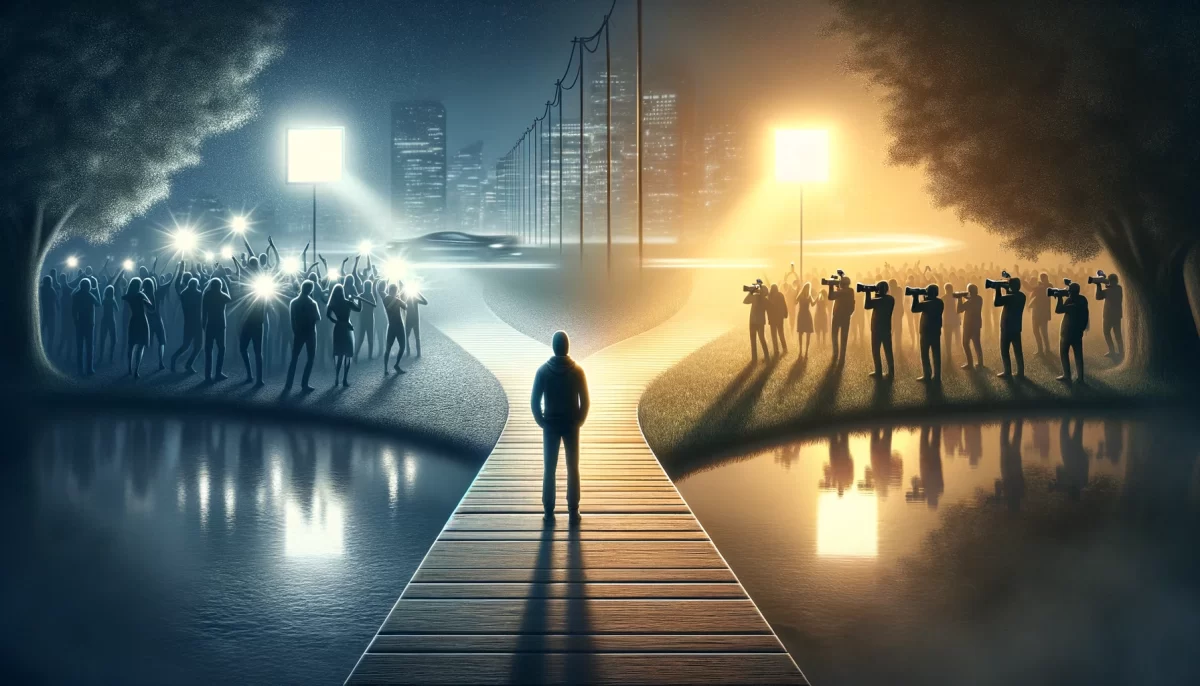

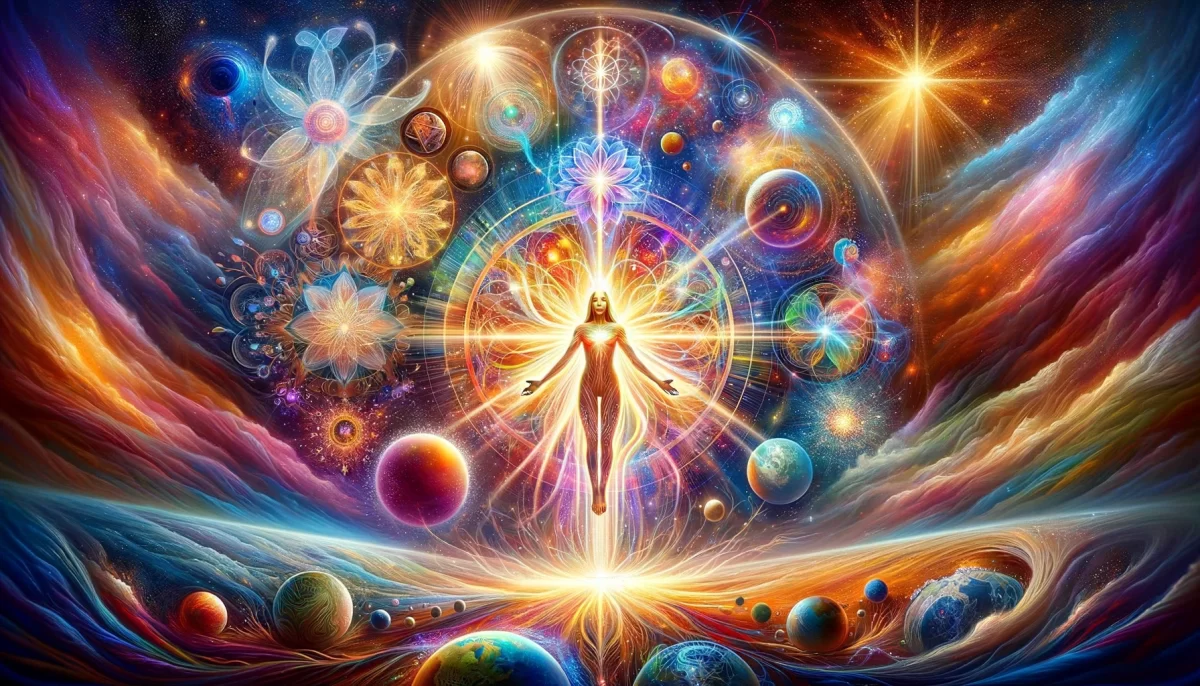
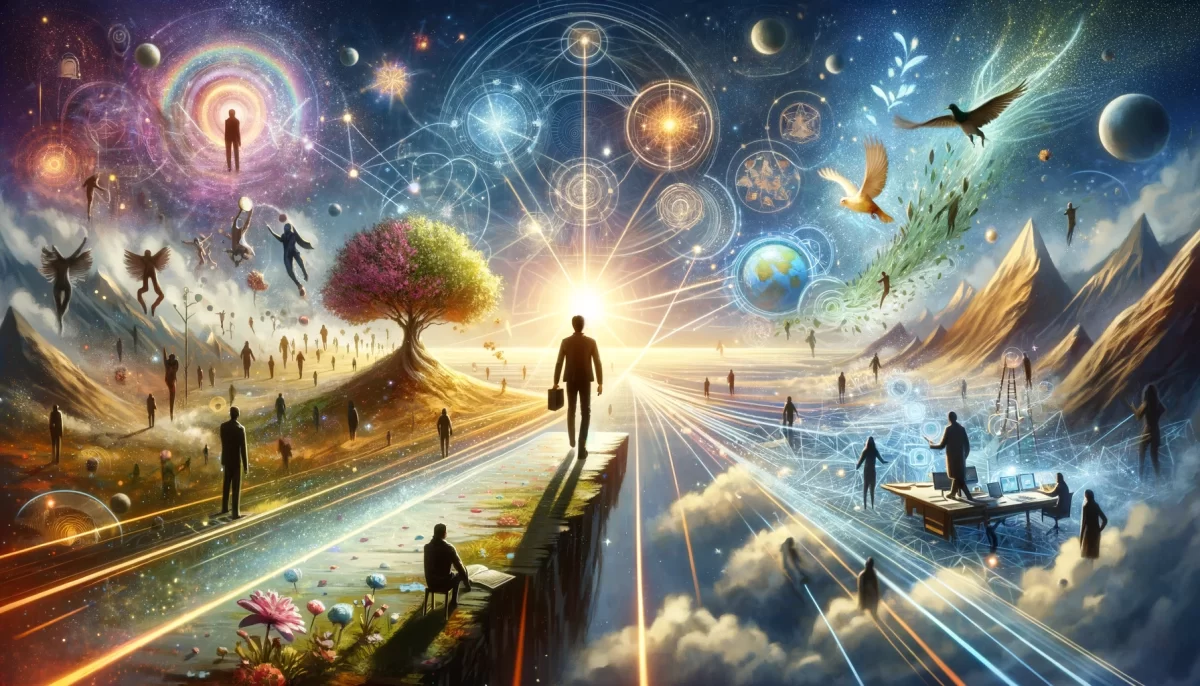
Leave a Reply